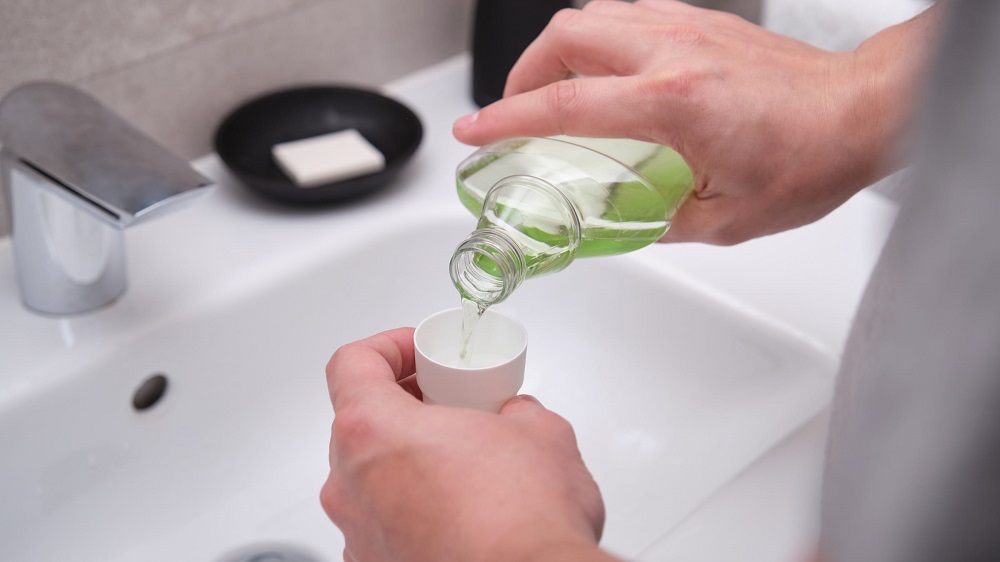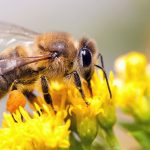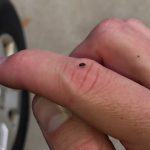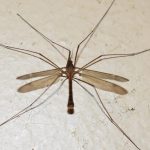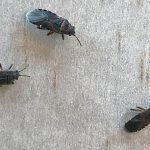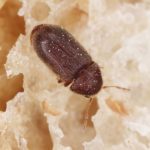Do you ever find yourself battling bugs in your home and wondering if your mouthwash could be the secret weapon to defeat them? It might sound like a far-fetched idea, but recent research has shown that certain mouthwash ingredients can effectively kill bugs. Who knew that something as simple as a swish and spit could also double as bug spray?
Mouthwash typically comprises various ingredients designed to freshen breath and clean teeth. Many brands contain alcohol, which acts as a disinfectant, while others include essential oils like menthol and eucalyptol for added antibacterial and antifungal properties.
These same ingredients have been found to have bug-killing abilities, making mouthwash an unexpected but potentially powerful tool in the fight against pesky insects.
This blog post will dive into the science behind this discovery, exploring which bugs can be eliminated with mouthwash and how to use it effectively.
Whether you’re a die-hard mouthwash user or have never considered its bug-killing potential, you won’t miss out on this fascinating topic.
So, sit back, swish some minty freshness around your mouth, and learn how your favorite oral care product could also be a formidable foe against unwanted creepy crawlies.
Different Types of Bugs and Their Reactions to Mouthwash
Contents
- 1 Different Types of Bugs and Their Reactions to Mouthwash
- 2 Alcohol as an Insecticidal Ingredient in Most Mouthwashes
- 3 Menthol as a Natural Insect Repellent in Some Mouthwashes
- 4 Is Using Mouthwash as a Bug Repellent or Killer Safe?
- 5 Is Using Mouthwash as a Bug Repellent or Killer Effective?
- 6 Conclusion
Have you considered using mouthwash as a solution? This post will explore the different types of bugs and their reactions to mouthwash.
Cockroaches are notorious for being difficult to eliminate once they invade a home. However, using mouthwash can be a game-changer.
Cockroaches are attracted to the sugar in mouthwash. The sugar causes their stomachs to expand when they consume it, ultimately leading to their demise. If you’re struggling with a cockroach infestation, consider using mouthwash as a safe and effective solution.
Ants are another common household pest that can be deterred by mouthwash. The strong scent of mouthwash is unpleasant to ants, causing them to avoid areas where it has been sprayed.
Additionally, the alcohol content in some mouthwashes can dry out their exoskeletons and lead to their death. So not only can mouthwash keep ants away, but it can also help eliminate them.
While spiders are not typically attracted to mouthwash, it can still be used as a repellent.
The strong scent of certain types of mouthwashes can deter spiders from entering specific areas of a home.
So, if you want to keep your home spider-free, try spraying some mouthwash around entry points.
Mosquitoes are a nuisance during warmer months, but did you know that mouthwash can help keep them at bay? While it may not directly kill mosquitoes, the strong scent of mouthwash can mask the human smell that attracts them. This makes it less likely for them to bite and cause annoyance.
However, it’s important to note that mouthwash alone may not eliminate an infestation.
Professional pest control services may be necessary in some cases. Also, while using mouthwash as a bug repellent is generally safe, ingesting large amounts can be harmful. Always follow proper safety guidelines.
Alcohol as an Insecticidal Ingredient in Most Mouthwashes
Alcohol, a common ingredient found in most mouthwashes, has insecticidal properties that can help eliminate pesky household pests like cockroaches, ants, spiders, and even mosquitoes.
Alcohol is a potent solvent that can dissolve the exoskeleton of insects, dehydrating them and ultimately causing them to die. Research has shown that mouthwash with an alcohol content of at least 20% can effectively kill common household insects.
However, it’s worth noting that not all mouthwashes contain high enough concentrations of alcohol to be effective as an insecticide.
In addition to its insecticidal properties, alcohol has antiseptic and antibacterial properties, making it a popular ingredient in mouthwash. It can help kill harmful bacteria in the mouth and prevent bad breath, making it a double-edged sword in personal hygiene.
But before you start spraying mouthwash all over your home, it’s essential to recognize that it’s not a long-term solution for pest control. Regular cleaning and proper sanitation practices are essential for preventing infestations.
Additionally, some insects may develop resistance to alcohol over time, making it less effective as an insecticide.
So, while alcohol can be an effective insecticidal ingredient in most mouthwashes, it should not be solely relied upon for pest control.
Always follow proper safety guidelines, and don’t ingest large amounts of mouthwash. And remember to maintain good hygiene practices to keep those pests at bay.
Menthol as a Natural Insect Repellent in Some Mouthwashes
The secret lies in menthol, a common ingredient found in several mouthwashes derived from mint plants, which has been discovered to possess insect-repellent properties.
Menthol is known for its cooling and soothing effects and has been proven to repel certain insects, such as mosquitoes, flies, and cockroaches.
The scent of menthol is believed to confuse an insect’s sense of smell, making it difficult to locate their prey or breeding grounds. Hence, some mouthwashes containing menthol have been promoted as insect repellents, particularly for outdoor camping and hiking.
However, it’s crucial to note that the concentration of menthol in these products may need to be stronger to effectively repel all types of insects.
Consequently, there may be more efficient solutions than relying solely on mouthwash for pest control, particularly when faced with severe infestations.
It’s vital to consider that while menthol may repel insects, it doesn’t necessarily eliminate them. Therefore, it is essential to use caution and consider other methods of pest control for more significant infestations.
Is Using Mouthwash as a Bug Repellent or Killer Safe?
It’s essential to consider the potential risks and effectiveness of this approach.
Most mouthwashes contain alcohol, which can be toxic to insects. However, it can also be hazardous to humans and pets if ingested in large quantities.
Additionally, ingredients like menthol, eucalyptol, and thymol, commonly found in many mouthwashes, can be toxic to insects but may cause allergic reactions in people. Before using any product as a bug repellent or killer, it’s crucial to read the label and understand the ingredients.
Moreover, using mouthwash may not be effective against all types of bugs. Cockroaches, for example, have developed immunity to many insecticides, including those found in some mouthwashes.
Therefore, it’s vital to consider other options and seek the advice of a pest control professional if you’re dealing with a severe infestation.
Is Using Mouthwash as a Bug Repellent or Killer Effective?
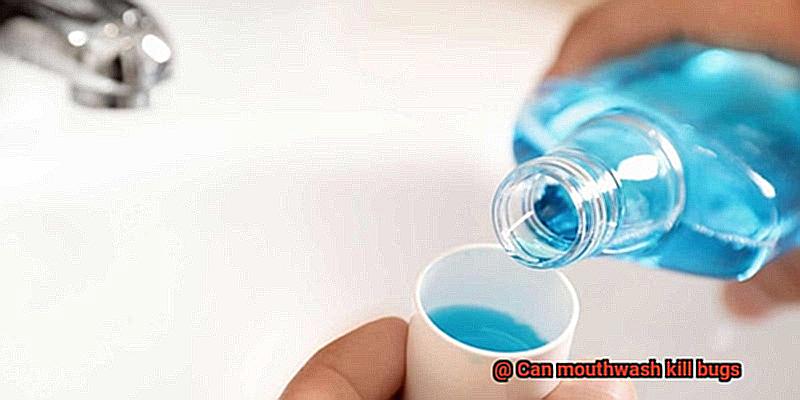
Maybe you’ve heard that using mouthwash as a bug repellent or killer is the solution. But, as a pest control expert, I must warn you to proceed cautiously.
Alcohol, the primary ingredient in most mouthwashes, can kill bugs on contact. However, the concentration of alcohol in mouthwash is much lower than in other insecticides specifically designed for bug control.
Plus, different bugs react differently to other treatments. While mouthwash may be effective against ants and cockroaches, it may not work as well on spiders or mosquitoes.
It’s crucial to remember that mouthwash is not intended for use as a bug repellent and may not work as well as other products specifically designed for that purpose. Although using mouthwash may provide some temporary relief, it’s unlikely to provide long-term pest control.
If you’re dealing with a serious bug infestation, it’s best to seek professional help from a pest control company or use products specifically designed for that purpose. Don’t take any chances by exposing yourself or your family to the potential toxicity of mouthwash.
Conclusion
In conclusion, the latest research has revealed that mouthwash can be a surprisingly effective tool in the fight against bugs.
With its composition of alcohol and essential oils like menthol and eucalyptol, mouthwash is formulated to freshen breath and clean teeth.
However, these same ingredients have been found to have insecticidal properties, making mouthwash an unexpected but potentially powerful weapon against pesky insects.
Different types of bugs react differently to mouthwash. Cockroaches are drawn to the sugar content in some mouthwashes, causing their stomachs to expand and ultimately leading to their demise.
Meanwhile, ants are repelled by the strong scent of certain mouthwashes and may even die from it due to its alcohol content. Spiders can be deterred by specific types of mouthwashes sprayed around entry points, while mosquitoes may be kept at bay by the strong scent masking human scent.
Using mouthwash alone might not wholly eradicate an infestation, and professional pest control services may sometimes be necessary. Although alcohol is an effective insecticidal ingredient in most mouthwashes, it should not be solely relied upon for pest control.
Menthol, another common ingredient derived from mint plants found in several mouthwashes, possesses insect-repellent properties but may not be potent enough to effectively repel all types of insects.
Before using any product as a bug repellent or killer, it’s crucial to read the label and understand the ingredients.
Using mouthwash may help keep specific bugs at bay, but it might not work against all types of insects.
If dealing with a severe infestation, it’s best to seek professional help from a pest control company or use products designed explicitly for that purpose instead of exposing yourself or your family to potential toxicity from relying on mouthwash alone.
In summary, while it’s exciting that something as simple as mouthwash could help combat bugs around the house, it’s always best to use caution and seek professional assistance when necessary.

